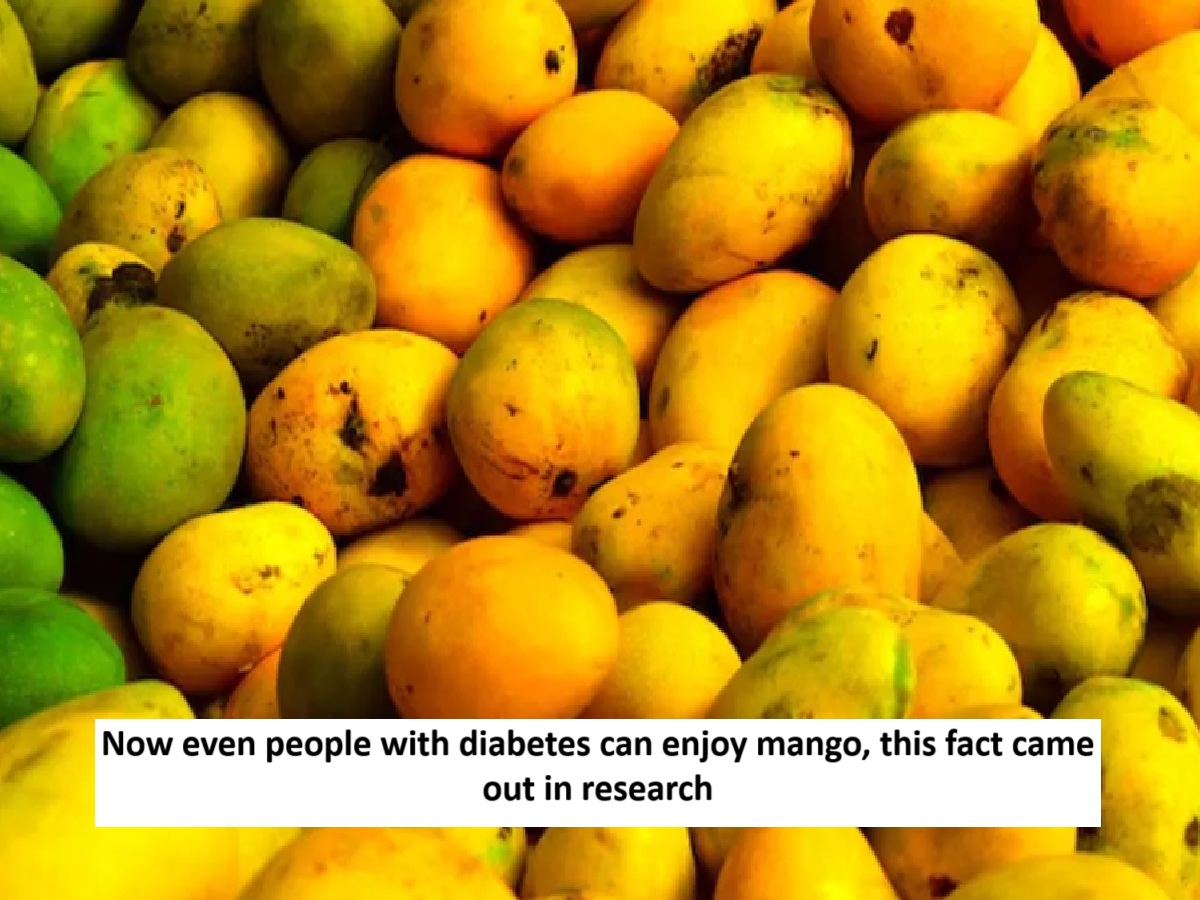
News Topical, Digital Desk : With modernity, many changes have come in the lifestyle. From food habits to dietary habits, everything has changed. Sleeping and waking time is not the same as before. All this is affecting our health. Many diseases have started to grip people. Those who used to enjoy seasonal fruits and vegetables are now bound by taboos. Controlling the tongue is a tough challenge due to sugar. But, if a new research is to be believed, now even people suffering from diabetes will be able to enjoy mango. In fact, two joint studies by Fortis C DOC Hospital for Diabetes and Allied Sciences and National Diabetes, Obesity and Cholesterol Foundation (N- DOC) have clearly shown that consumption of mango in controlled quantities not only keeps glycemic (blood sugar) under control in type-2 diabetes, but also reduces body fat.
Less increased glucose levels than bread
'Study with Continuous Glucose Monitoring and Oral Tolerance Test' included 95 participants. Of these, 45 had type-2 diabetes and 50 were normal people. Both diabetic and diabetes-free people were given 250 grams of mango (safeda, dussehri and langda) or equal amount of calorie bread. Testing and multiple blood sugar assessments were done for two hours. Participants were evaluated with the help of continuous glucose monitoring (continuous sensor-based sugar monitoring for three days). Comparative study of glucose of safeda, dussehri and langda and white bread made it clear that in the oral tolerance test, consumption of mango in both the categories of people showed the same or less glycemic response as consuming bread. Continuous glucose monitoring found that mango consumption resulted in significantly less harmful glucose variability (mean amplitude of glycemic excursion) over three days in diabetic participants than bread consumption.
Body weight decreased, waist width also decreased
The second study 'Randomized Trial for 8 weeks' published in the Journal of Diabetes and Metabolic Disorders included 35 adults suffering from type-2 diabetes. All of them were given 250 grams of Safeda or Dussehri mango or white bread for breakfast every day for 8 weeks. Fasting blood glucose (HbAC), a long-term measure of average glucose, decreased in the participants. Also, a decrease was observed in insulin resistance (HOMA-IR and an indicator of the effectiveness of internally produced insulin). Consuming mango not only reduced body weight, but also reduced waist width. That is, the fat deposited on the stomach and skin was effectively reduced. At the same time, an improvement was also seen in HDL i.e. good cholesterol level.
The results are contrary to the general concept
The number of patients with type-2 diabetes in the country is higher than in other countries of the world. Mango is the most popular fruit in the country, but due to the amount of sugar, it is usually not included in the diet of diabetic patients. The results of both the studies were surprising. Contrary to the general concept about food, they recommend eating mango even to sugar patients. Now, instead of refined carbohydrates like white bread, it can be considered suitable to be included in a balanced, calorie-restricted meal plan. While 'Study with Continuous Glucose Monitoring and Oral Tolerance Test' has been accepted for publication in the European Journal of Clinical Nutrition, 'Randomized Trial for Eight Weeks' has been published in the August 6 issue of the Journal of Diabetes and Metabolic Disorders.
Approval received for clinical trial
The study was led by Padma Shri Dr. Anoop Mishra, Executive Chairman and Director, Fortis C-DOC Hospital for Diabetes and Allied Sciences. Dr. Sugandha Kehar of Fortis C-DOC Hospital assisted. Financial support was provided by the Indian Council of Medical Research. Both studies were conducted at Fortis C-DOC Hospital and National Diabetes, Obesity and Cholesterol Foundation (N-DOC), New Delhi. Ethical approvals have been received for their clinical trials, which have also been registered on ClinicalTrials.gov.
--Advertisement--

 Share
Share



